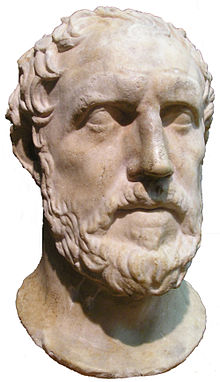Further information: Great Debates (international relations theory)
The study of International relations as theory can be traced to E.H. Carr's "The Twenty Years' Crisis" which was published in 1939 and to Hans Morgenthau's "Politics Among Nations" published in 1948.[4] International relations as a discipline is believed to have emerged after the First World War with the establishment of a Chair of International Relations at the University of Wales, Aberystwyth.[5]Early international relations scholarship in the Interwar years focused on the need for the balance of power system to be replaced with a system of collective security. These thinkers were later described as "Idealists".[6] The leading critique of this school of thinking was the "realist" analysis offered by Carr.
[edit]Realism
Main article: Realism in international relations theory
Further information: Classical realism in international relations theory, Neorealism (international relations), Offensive realism, Defensive realism, Liberal realism, Neoclassical realism, Postclassical realism, Relative gains, and Absolute gains
Realism or political realism[8] has been the dominant theory of international relations since the conception of the discipline.[9] The theory claims to rely upon an ancient tradition of thought which includes writers such as Thucydides, Machiavelli, and Rousseau. Early realism can be characterized as a reaction against interwar idealist thinking. The outbreak of World War II was seen by realists as evidence of the deficiencies of idealist thinking. There are various strands of modern day realist thinking. However, the main tenets of the theory have been identified as statism, survival, and self-help.[9]
- Statism: Realists believe that nation states are the main actors in international politics.[10] As such it is a state-centric theory of international relations. This contrasts with liberal international relations theories which accommodate roles for non-state actors and international institutions. This difference is sometimes expressed by describing a realist world view as one which sees nation states as billiard balls, liberals would consider relationships between states to be more of a cobweb.
- Survival: Realists believe that the international system is governed by anarchy, meaning that there is no central authority.[8] Therefore, international politics is a struggle for power between self-interested states.[11]
- Self-help: Realists believe that no other nation states can be relied upon to help guarantee the state's survival.
Realism makes several key assumptions. It assumes that nation-states are unitary, geographically-based actors in an anarchic international system with no authority above capable of regulating interactions between states as no true authoritative world government exists. Secondly, it assumes that sovereignstates, rather than IGOs, NGOs or MNCs, are the primary actors in international affairs. Thus, states, as the highest order, are in competition with one another. As such, a state acts as a rational autonomous actor in pursuit of its own self-interest with a primary goal to maintain and ensure its own security—and thus its sovereignty and survival. Realism holds that in pursuit of their interests, states will attempt to amass resources, and that relations between states are determined by their relative levels of power. That level of power is in turn determined by the state's military and economic capabilities.
Some realists (human nature realists)[12] believe that states are inherently aggressive, that territorial expansion is constrained only by opposing powers, while others (offensive/defensive realists)[13] believe that states are obsessed with the security and continuation of the state's existence. The defensive view can lead to a security dilemma where increasing one's own security can bring along greater instability as the opponent(s) builds up its own arms, making security a zero-sum game where only relative gains can be made.

No comments:
Post a Comment